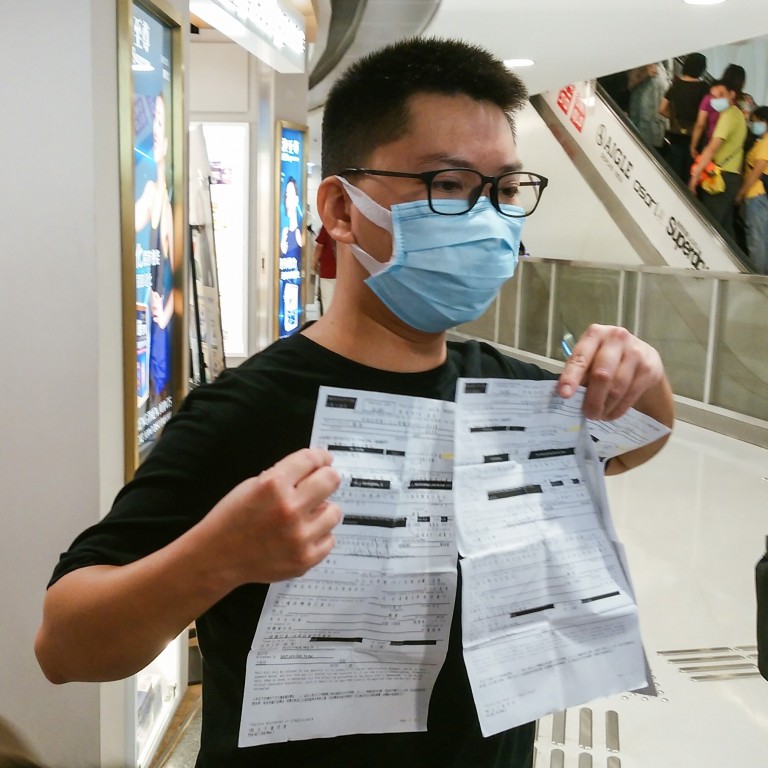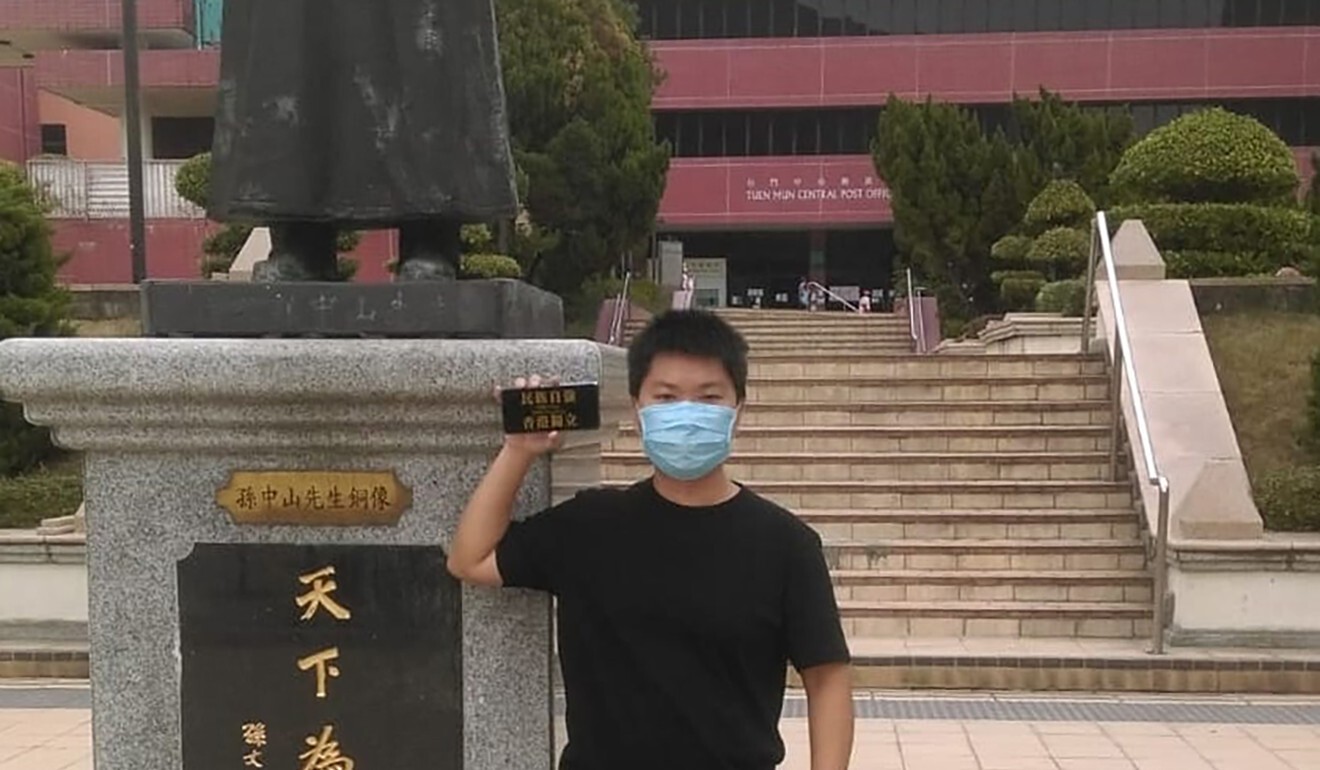
National security law: Hong Kong man convicted of inciting secession with pro-independence slogans
- Former food delivery driver Adam Ma was accused of using slogans such as ‘Hong Kong independence, the only way out’ on at least 20 occasions
- District Court judge rejects 31-year-old’s defence that he had not intended for others to put his words into action
Adam Ma Chun-man faces up to seven years in jail after a District Court judge, hand-picked by city leader Carrie Lam Cheng Yuet-ngor to adjudicate national security proceedings, rejected his defence that he never intended for others to put his words into action.
An avid protester who dubbed himself a second-generation Captain America – a reference to a prominent demonstrator who dressed up as the superhero during the 2014 Occupy movement – Ma was the second defendant to stand trial under the Beijing-imposed legislation, which also outlaws acts of subversion, terrorism and collusion with foreign forces.

He was arrested five times for chanting protest slogans before he was charged and remanded in custody by a magistrate after the sixth occasion. He committed further offences every time he was released on bail.
Ma told reporters following his earlier arrests that he was merely exercising his freedom of speech under the Basic Law, the city’s mini-constitution, adding the security law was nothing more than “decoration” and predicting offenders would be let off lightly.
Teen activist bailed in security law case, but 3 others must stay in jail
In his ruling, Judge Stanley Chan Kwong-chi said he found it difficult to understand the defendant’s logic and stressed all personal freedom and rights were subject to restrictions.
That included the restriction imposed by the Basic Law’s Article 1, which stated that Hong Kong was an inalienable part of China, Chan said.
“The destructive and subversive nature of the otherwise unlimited personal freedom and rights go without saying,” he wrote in a 33-page judgment.
Chan rejected the defence’s argument that Ma’s actions were devoid of substance, pointing to his highly repetitive and consistent speeches in finding that, instead of aimlessly shouting in public, the activist had sincerely hoped for a positive response from those who echoed him.
“I have no doubt in finding that the defendant indeed harboured a criminal intent. It was neither self-indulgence nor, as put by the defence, ‘ballyhoo’,” the judge said.
“The defendant indeed believed that the national security law was fake, that it was no more than decoration, and deliberately challenged the law. His motive and criminal intent cannot be clearer.”
The judge further questioned whether a defence lawyer, who had been representing Ma since September 2020, had duly discharged his professional duty, saying the defendant appeared to have received no advice from his counsel every time he was arrested.
How many meanings are there in protest slogan ‘Liberate Hong Kong’?
Ma might have enjoyed being surrounded and interviewed by “a group of reporter lookalikes” and might have lacked detailed planning in achieving independence, but he could have gradually changed people’s minds through his “human recorder-style” speeches and made them believe it was possible, Chan said.
The judge also cited the High Court’s verdict in Leon Tong’s case in finding it irrelevant to consider the impact and actual consequences of Ma’s actions.
Ma, who has been remanded in custody since last November 24, will be sentenced on November 11 pending a psychological report.
Inciting secession is punishable by up to 10 years in prison, but sentences are capped at seven years at the District Court level. A minimum jail term of five years is applicable in serious cases.
The city’s first national security law trial was heard in June and July, and ended with Tong, a restaurant worker, sentenced to nine years behind bars.
